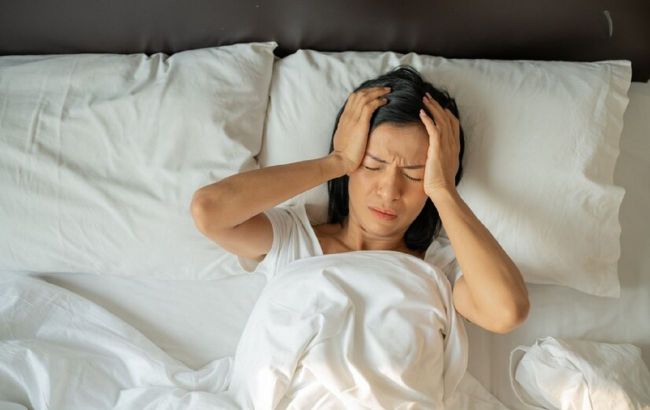How to finally get enough sleep? Causes of insomnia, symptoms and secrets of good sleep
 Insomnia is harmful (photo: Getty Images)
Insomnia is harmful (photo: Getty Images)
Insomnia is terrible because it ruins your life, all aspects of it. Sleeping difficulties can have many causes, but they always have bad consequences. Are you ready to figure out why you have trouble sleeping and what to do about it?
Causes of insomnia
Although we are all different, research has shown a clear picture of how sleep loss becomes chronic and insomnia develops. This process goes through three stages.
First, a person may be more prone to sleep difficulties than others. He or she may be naturally anxious or have trouble "switching off" at night.
Secondly, there is usually also something that triggers an episode of insomnia. This could be a period of emotional stress, like the loss of a loved one or a divorce, or a sudden change in environment.
Thirdly, as a result of poor sleep, habits and behaviors develop to cope with the effects of sleep loss, but they make the problem worse.
Symptoms of insomnia
Here are the most common symptoms of insomnia:
- You have trouble falling asleep.
- You lie awake for a long time at night.
- You wake up several times during the night.
- You wake up early in the morning and can't get back to sleep.
- You do not feel rested when you wake up.
- You can't fall asleep during the day despite being tired.
- You feel tired and irritable during the day and have difficulty concentrating.
- You cannot remember things easily.
These symptoms very often occur from time to time, and it does not cause long-term problems. However, long-term suffering can lead to mental health issues such as depression or anxiety.
7 ways to overcome insomnia
Try cognitive behavioral therapy. CBT is a proven method of learning to sleep again. The therapy helps you understand how problems affect you and your sleep.
Try relaxation for insomnia. Insomnia is often associated with feelings of anxiety. If you often worry about things, you need to address these issues and put them aside when you go to bed. Try the following relaxation techniques:
- Breathing exercises
- Mindfulness
- Meditation and yoga techniques
- Guided visualization
Beware of blue light. Artificial light, LEDs, fluorescent lights, and incandescent bulbs trick the brain into thinking it's daytime. Your body will want to get ready for the day by producing the hormone cortisol, which is not advisable before bed!
Avoid caffeine if possible. Avoid anything with caffeine after 2 pm. Caffeine stays in the body for up to 8 hours.
Avoid alcohol. Alcohol acts as a sedative, causing your body and mind to skip an important stage of the circadian rhythm, leading to a poor night's sleep.
Ask your doctor for advice. Your doctor is the most qualified source of insomnia advice. If you find it difficult to manage your insomnia on your own, your doctor may recommend alternative methods for getting a good night's rest.
Practice good sleep hygiene. This is the best way to start your journey to a better night's rest. This term refers to a set of practices and habits:
- A consistent sleep schedule. Go to bed and wake up at the same time every day, even on weekends, to regulate your body clock.
- Create a relaxing bedtime ritual. Activities like taking a warm bath, reading a book, or doing deep breathing exercises can help prepare your body for sleep.
- A comfortable sleeping environment. A quiet, dark, and cool room with a comfortable bed and mattress can help you sleep better.
- Regular exercise. Regular physical activity promotes better sleep, but it is important to avoid exercising too close to bedtime.
This material is for informational purposes only and should not be used for medical diagnosis or self-treatment. Our goal is to provide readers with accurate information about symptoms, causes, and methods of detecting diseases. RBС-Ukraine is not responsible for any diagnoses that readers may make based on materials from the resource. We do not recommend self-treatment and advise consulting a doctor in case of any health concerns.

